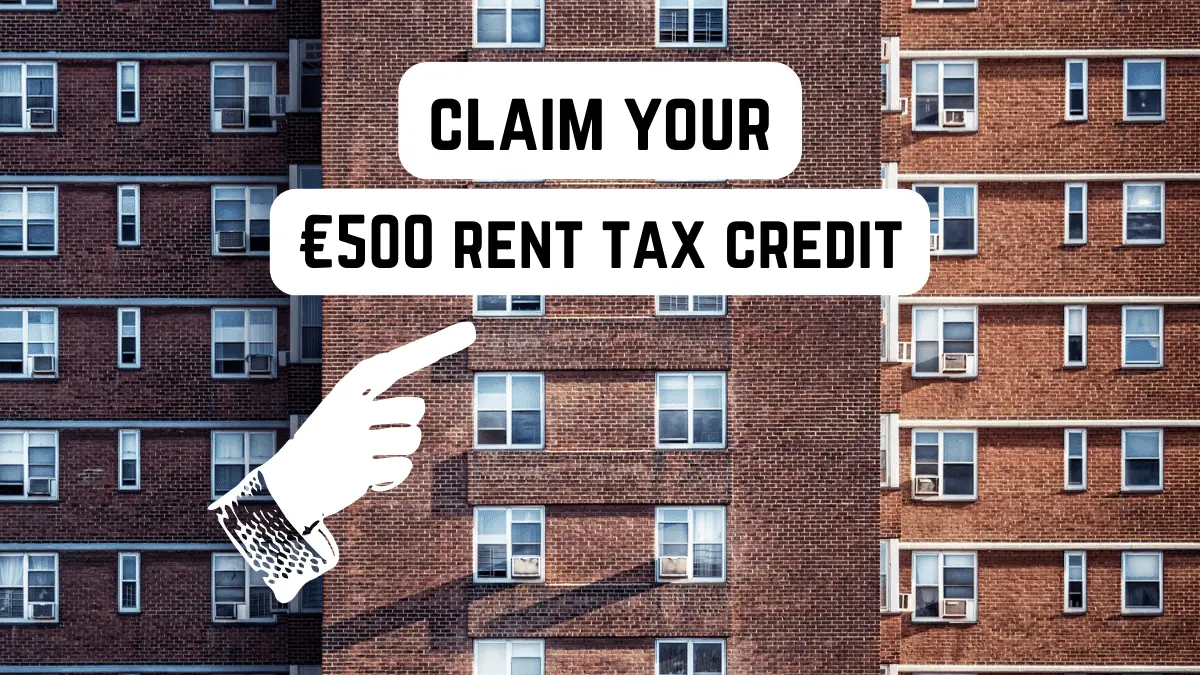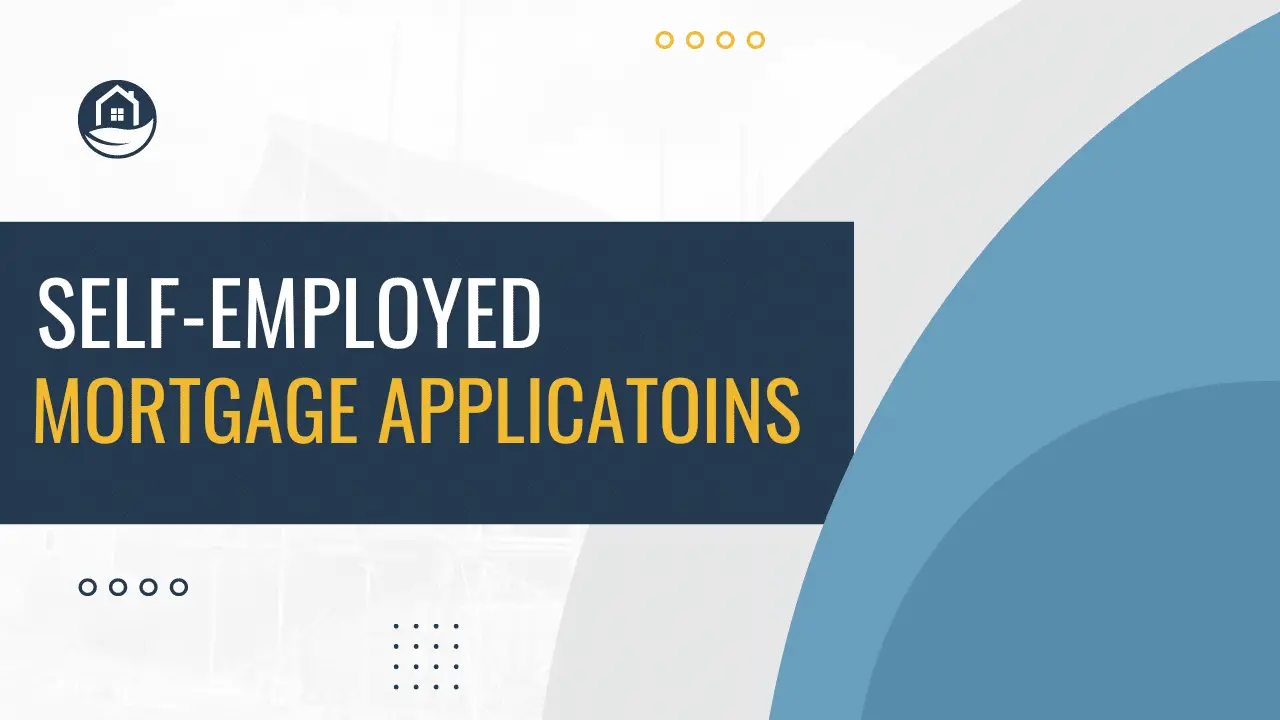The housing crisis in Ireland has led to the government bringing in some emergency measures to help struggling renters in the form of a Rent Tax Credit.
In this blog post, I will explain how the credit works, who is eligible and give you a step-by-step guide to claiming your own tax credit for 2022 and 2023.
What is the Rent Tax Credit?
The ‘Rent Tax Credit’ was announced in Budget 2023 and will allow renters to claim up to €500 (€1,000 for married couples) of a PAYE tax credit for the 2022-2025 tax years.
To be eligible for the full €500 Rent Tax Credit you will need to have made €2,500 in qualifying rental payments. If you have made payments less than this amount you will still receive a tax credit of 20% of qualifying rental payments made.
Also, to get the full benefit of this tax credit you will need to be earning €19,500 or more per annum, as the Rent Tax Credit will only be applied to PAYE, and not USC or PRSI.
Who is eligible for the Rent Tax Credit?
If you rented a property in 2022/2023 or rented a room from somebody and it was your principal private residence then you may be eligible to claim the Rent Tax Credit. Full guidance on the Rent Tax Credit from the Revenue Commissioner can be found here.
Qualifying rental payments do not include those made for a deposit, repairs and maintenance and other household bills. What would also not be considered a qualifying rental payment is a payment of arrears if it is related to a prior tax year.
Renting a whole property – to be eligible for the Rent Tax Credit the landlord must have registered that property with the RTB (Residential Tenancies Board) and the property must be your principal private residence.
Renting a Room: In a case where you are renting a room there is no requirement for the property to be registered with the RTB.
Who cannot claim the Rent Tax Credit:
- If you are in receipt of assistance from HAP or any other Housing Assistance.
- Persons who are renting from a parent or child
- Persons renting from a housing association or approved housing body
Other scenarios where you can claim the Rent Tax Credit:
Can’t be renting from parent – but other relative:
- You are renting another property for the purposes of attending your work or an approved course.
- If you are renting a property for your child who is attending an approved course.
Rent Tax Credit Calculation Example
John moves into rental accommodation on 1 June 2022 and pays rent of €700 per month. John also paid a security deposit of €700 in June in addition to his rent when he first moved in.
For the purposes of the rent tax credit, John will incur qualifying payments of €4,900 (€700 *7) during the 2022 tax year. The security deposit is disregarded for the Rent Tax Credit calculation.
John can claim the maximum relief of €500 in 2022, as John has qualifying payments well in excess of €2,500.
Step by Step Guide to claiming your Rent Tax Credit
In order to claim the Rent Tax Credit, you will need to complete an income tax return. For PAYE workers, this can be done through Revenue.ie.
Note: you will not be required to upload any supporting documentation like rental agreements, but you should keep these on file in case you are every subject to a Revenue audit.
Step 1 – Sign into your ‘My Account’ on Revenue.ie

Step 2 – Manage your 2022/2023 Taxes
Next, you need to select the option – Manage your 2018-2022 taxes, which will bring you to the following screen where you can request your statement of liabilities for the year.

Once you request your statement of liabilities, you will receive a summary of your taxes for the year and will be notified if you have over or underpaid tax.

Prepare an Income Tax Return
At this point, you can decide to prepare an income tax return, which will allow you to declare any additional income you have, if any, and claim additional tax credits that may not have been accounted for. (The option to prepare the income tax return will be at bottom of the page above).
Additional tax credits can be added to your income tax return on step 4, and this is where you will find the Rent Tax Credit, which is located under the ‘you and your family’ section.


Complete the Rent Tax Credit Questionnaire
First up, you will be asked if you are already in receipt of HAP or any other State Housing Support Scheme. Followed by confirming whether or not your landlord is a government minister or Commissioner of Works.

In the next section, you will need to add your PPS number and also confirm whether or not the property you are renting is registered with the RTB. If you are renting a property that is not registered with the RTB, then you will not be eligible for the Rent Tax credit.
The RTB registration number is not a required field. However, it would be best practice to include this as Revenue may come looking for it at a future date to make sure you were eligible for the Rent Tax credit.
However, if you are renting a room from someone, then you can select ‘No’ for section 2.

Next you will be required to add some details of the property that is being rented.

The following section will ask you to fill in some more basic details about your landlord. Information that is asked for is the landlord’s address, tax residency, and tax number. Again, this is not a required field but the more information you can give to the Revenue Commissioner the better.

The final section will ask you to add in details of the person who the rent has been paid to and the gross amount of relief due (rent paid).
The gross amount of relief due for the rent tax credit will be €2,500, and then you will receive a 20% tax credit for whatever your gross rental amount is.
For the majority of people who have been renting for the entire year, they will most likely have paid rent well over €2,500. Therefore, they can expect to receive the full tax credit of €500 ( or €1,000 in the case of a married couple).

Finally, you can click add to include the rent tax credit in your income tax return. Don’t forget to review all other tax credits that may be available to you so you can minimise your taxes.
Disclaimer: This blog post is for informational and educational purposes only and should not be construed as financial advice.







